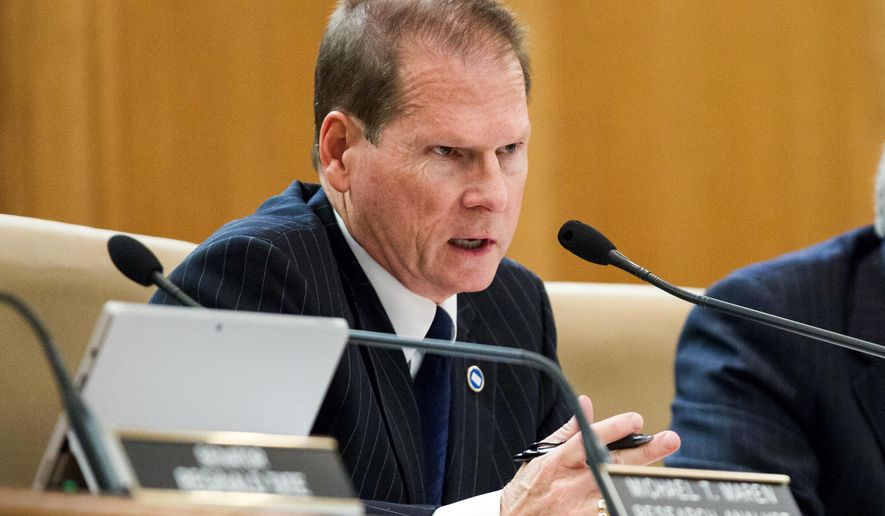A Tennessee bill that would recognize some handgun owners as police is stirring opposition from gun control activists who say it encourages vigilantism.
The law, filed in both chambers of the state’s General Assembly on Feb. 2, redefines “law enforcement officer” under Title 39 of the Tennessee Code Annotated to include private citizens who pay $100 and take an eight-hour written and live-fire handgun safety test.
Gun control activists argue that the bill, which would allow citizens with a valid enhanced handgun carry permit to bring their guns into most public places regardless of other laws or rules, deputizes untrained citizens to potentially terrorize and shoot innocent people.
“Encouraging people to arm themselves and play police puts everyone at risk while making the jobs of actual law enforcement much more difficult,” said Shannon Watts, founder of Moms Demand Action. “The process of obtaining a handgun permit doesn’t come anywhere close to the extensive training that real officers go through and it’s ridiculous to equate the two.”
Tennessee has the 14th highest rate of gun violence in the country, she added.
“Extremist and dangerous bills like these are part of the gun lobby’s blatant attempt to codify and legalize armed vigilantism,” Ms. Watts said.
Some law enforcement officials have also come out against the bill, including the Tennessee State Lodge for the Fraternal Order of Police.
“I do think it is important to let you know we are still trying to work with the lawmakers to achieve a successful outcome,” Scottie DeLashmit, lodge president, told The Washington Times on Thursday.
In a statement emailed to ABC News on Feb. 14, Mr. DeLashmit wrote: “The Tennessee Fraternal Order of Police is adamantly opposed to this bill in its current form. We feel as though anyone addressed as a law enforcement officer should graduate from a certified law enforcement training academy.”
State Sen. Joey Hensley and Rep. Chris Hurt, both Republicans, introduced the proposed law to the Tennessee House and Senate.
“This is trying to open it up so that people who go to the extreme to get this extra permit can have the right to defend themselves in more places,” Mr. Hensley told ABC News on Feb. 17.
In addition to the bill, a Tennessee House subcommittee approved a separate bill on Tuesday that allows 18-year olds to apply for concealed-carry permits.
The bill comes as some other states have moved to empower their citizens in the opposite direction.
On Friday, California Gov. Gavin Newsom, a Democrat, proposed allowing private citizens to enforce the state’s ban on assault rifles by suing any gun makers who sell them illegally.
And Missouri Sen. Steven Roberts, a Democrat from St. Louis, has drafted a bill that would limit the state’s citizen’s arrests law to merchants attempting to stop shoplifters and to people helping police detain someone they’ve witnessed attempting a kidnapping or murder.
Mr. Roberts has modeled his legislation on a similar bill that passed in Georgia last year.
But while opponents of citizen’s arrest laws say most states enacted them during the era of slavery to justify lynching African-Americans, proponents point out that the laws act as a deterrent.
Gun rights advocate Rick Green, a former state legislator and onetime Republican candidate for the Texas Supreme Court, praised the Tennessee bill for that reason.
“Tennessee legislators are doing exactly the right thing by protecting the right of citizens to defend themselves wherever they go,” Mr. Green said. “As crime continues to surge, gun control activists are exactly backward to want to make it harder for trained good guys and gals with guns to defend themselves and others.”
The attorney added that in Texas, crime has decreased as a result of citizens’ arrest and open-carry laws.
“Gun control measures have failed every single time, while training and arming law-abiding citizens works every time, proving the wisdom of the Founding Fathers clarifying the natural right of self-defense in our Constitution,” Mr. Green said.
Attorney Amy Swearer, a legal fellow at the conservative Heritage Foundation, said the proposed Tennessee law merely extends an exemption for firearms restrictions from law enforcement officers to a small number of responsible gun owners.
“The bill would likely cause less confusion if it just said that the public carry provisions for law enforcement officers in § 39-17-1350(d) now extend to civilians with a valid enhanced handgun carry permit,” Ms. Swearer said. “But the general premise that Tennesseans with enhanced handgun carry permits should be allowed to carry their firearms in more public spaces and with fewer restrictions is not particularly remarkable.”
Nor does the bill create a “free-for-all” environment where enhanced handgun carry permit holders may use their guns without regard for public safety, she added.
While the bill would include ’enhanced handgun carry permit holders’ within the definition ’law enforcement officers,’ it does so only with respect to a specific legal provision regarding the public carry of firearms. It doesn’t formally deputize the enhanced permit holders as sworn peace officers, expand their rights to threaten and use deadly force or otherwise give them any authority to enforce laws and engage in police functions for the state.
“They still would be subject to restrictions on carrying firearms while intoxicated or while consuming alcohol, while participating in a court hearing, or while on school grounds without first notifying the school,” Ms. Swearer said. “And, of course, they still would be civilly and criminally liable if they brandish, use, or threaten to use their firearms without adequate justification under existing laws.”
Correction: A previous version of this article incorrectly referred to Rick Green as a current Texas Supreme Court candidate.
• Sean Salai can be reached at ssalai@washingtontimes.com.




Please read our comment policy before commenting.